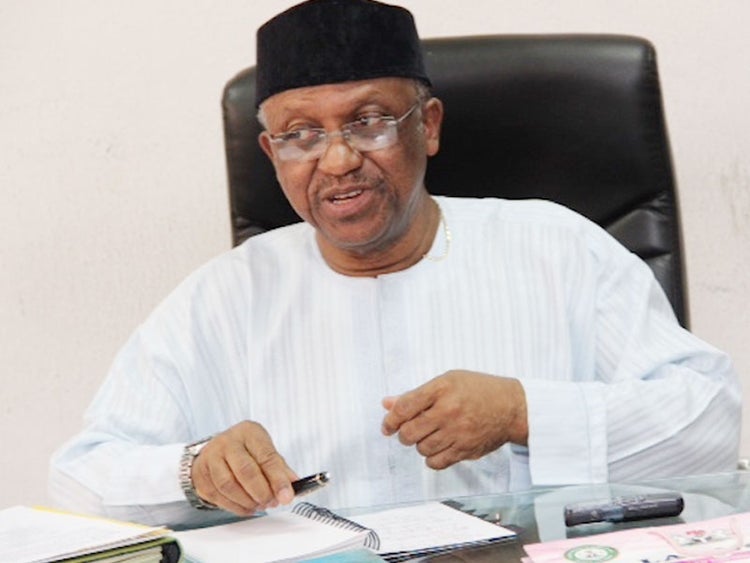Sickle cell: Nigeria worst hit in Sub-Saharan Africa — FG
The Minister of Health, Osagie Ehanire, says Nigeria has 66 percent of the cases of babies born annually with sickle cell disorders in Sub-Saharan Africa. He stated this yesterday in Abuja during the national dialogue on better life for persons living with sickle cell disorders organised by the SOM Sickle Cell Foundation in collaboration with […]

Minister of Health, Osagie Ehanire
The Minister of Health, Osagie Ehanire, says Nigeria has 66 percent of the cases of babies born annually with sickle cell disorders in Sub-Saharan Africa.
He stated this yesterday in Abuja during the national dialogue on better life for persons living with sickle cell disorders organised by the SOM Sickle Cell Foundation in collaboration with the Yakubu Gowon Centre.
Quoting the World Health Organisation, he said, over 300,000 babies globally were born annually with sickle cell disorders with over 75% cases in Sub-Saharan Africa.
He said five percent of the world’s population has hemoglobin disorders, mainly sickle-cell disease and thalassemia.
- Rise up against arrest of Aisha Buhari’s critic, Najatu Mohammed charges Nigerians
- Rashford double downs Wales and sends England into last 16
Chairman, SOM Sickle Cell Foundation, Mallam Shehu Olaitan Mohammed, said the dialogue was to bring all stakeholders together to deliberate on how best to address the menace of sickle cell disorder in the society.
He said the foundation had, among other things, enrolled 100 indigent sickle cell warriors for the National Health insurance Scheme and would increase the number to 400 in the next five years.
According to him the foundation plans to start its “know-your genotype drive by conducting free genotype testing for a minimum of 100 people every year.
Pharmacist Zainab Ujudud Sheriff, Director and Head of Traditional, Complementary and Alternative Medicine Department, Federal Ministry of Health, advised mothers and other care givers to harness the benefits of traditional medicine.
Prof. Aisha Indo Mamman, Consultant Haematologist, Ahmadu Bello University Teaching Hospital, Zaria, urged support for SCD patients and their relatives.
Prof. Olusegun Shoyombo, consultant psychiatrist at the National Hospital, Abuja, advised the public against stigmatizing people living with SCD.
